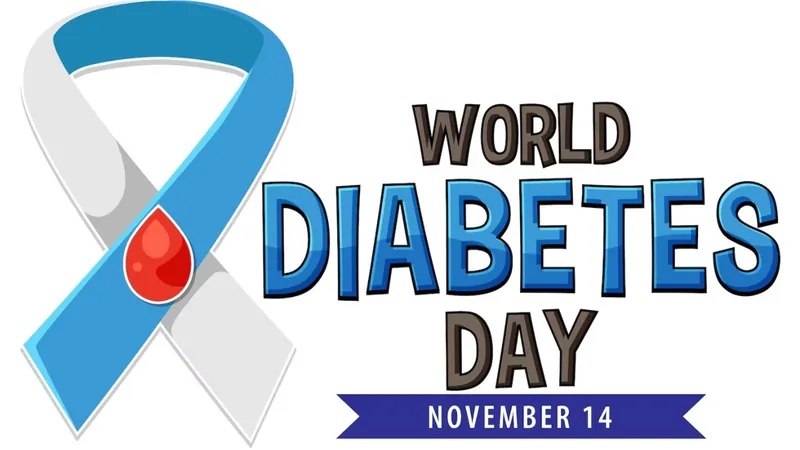
World Diabetes Day 2024: Is Your Thirst a Hidden Sign of High Blood Sugar?
2024-11-14
Author: Yu
Diabetes: A Metabolic Disorder
Diabetes is more than just a sugar problem; it’s a metabolic disorder that results from an imbalance in insulin production or the body’s responsiveness to this crucial hormone. Insulin plays a vital role in allowing cells to absorb glucose from the bloodstream, which is then used for essential energy functions in our bodies.
The Thirst Alert: Understanding Polydipsia
But did you know that feeling excessively thirsty could be a red flag for diabetes? Persistent thirst, known medically as polydipsia, is frequently among the earliest indicators of that sneaky condition called diabetes. When insulin levels plummet, glucose starts to accumulate in the bloodstream, triggering the body to react in distinct ways.
Dr. Vinod Prem Anand, a Senior Consultant in Internal Medicine & Diabetes at MGM Healthcare, sheds light on this alarming symptom. We all experience thirst—after a good workout, on a hot day, or simply when we forget to hydrate. However, when thirst becomes unrelenting and severe, it may signal a more serious issue like diabetes.
As blood glucose rises, the kidneys step into action, working overtime to filter out the excess sugar. This process results in increased urination as the body attempts to expel the surplus glucose, which inadvertently withdraws water from the system. Hence, the cycle begins: the kidneys push out glucose and water, leaving you parched and desperate for hydration.
Recognizing the Connection to Diabetes
If you find yourself drinking copiously yet still feeling thirsty, it could mean your body is battling high blood sugar levels. This relationship between excessive thirst and frequent urination is a classic diabetic scenario. What’s more, hyperglycemia often leads to exhaustion, as the body struggles to utilize glucose efficiently to produce energy.
While diabetes is a primary cause of polydipsia, it’s essential to recognize that not all persistent thirst points to this condition. Dehydration, certain medications, kidney disorders, and hormonal imbalances can also produce similar feelings.
Keep an Eye on Your Symptoms!
The key takeaway? While occasional thirst is normal and usually harmless, unyielding thirst, especially when coupled with other indicators like fatigue, might warrant further investigation. Regular check-ups and monitoring any abnormal changes in your thirst levels could lead to early detection and treatment of diabetes or other underlying health issues.
So, as we commemorate World Diabetes Day 2024, stay vigilant! Understanding your body’s signals can be a significant step towards ensuring your health and well-being. Don’t let subtle signs go unnoticed—your thirst could be telling you something vital!




 Brasil (PT)
Brasil (PT)
 Canada (EN)
Canada (EN)
 Chile (ES)
Chile (ES)
 España (ES)
España (ES)
 France (FR)
France (FR)
 Hong Kong (EN)
Hong Kong (EN)
 Italia (IT)
Italia (IT)
 日本 (JA)
日本 (JA)
 Magyarország (HU)
Magyarország (HU)
 Norge (NO)
Norge (NO)
 Polska (PL)
Polska (PL)
 Schweiz (DE)
Schweiz (DE)
 Singapore (EN)
Singapore (EN)
 Sverige (SV)
Sverige (SV)
 Suomi (FI)
Suomi (FI)
 Türkiye (TR)
Türkiye (TR)